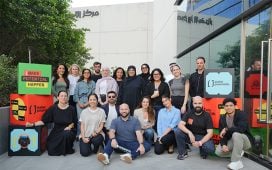By Alex Malouf, past-chair, International Association of Business Communicators, Europe, Middle East and North Africa
Is it time we look beyond Dubai if we’re going to promote and develop the communications function?
I’m going to show my age from the get-go, with a recollection of how Lebanon and then Bahrain were the centers for marketing and communications in the Levant and Gulf respectively. These were the days before Dubai became the place to be, before any self-respecting agency had to have Dubai on its website, business cards and letterhead.
The focus on Dubai is understandable. Dubai is a won
To continue reading this article you need to be registered with Campaign. Registration is free and only takes a minute. Register Now or sign in below if you already have an account.









